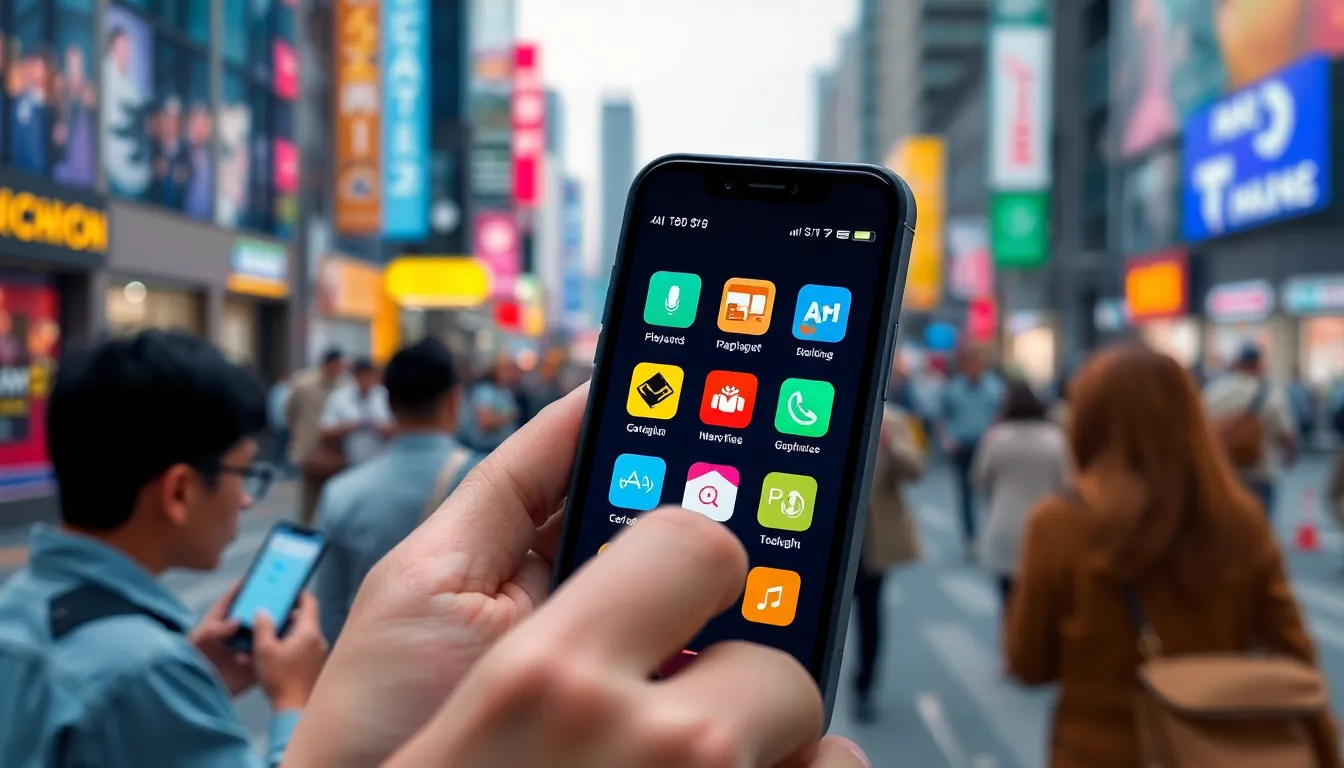In a world where smartphones have become an extension of ourselves, it’s hard to imagine life without a trusty app or two. Mobile services often take it upon themselves to preload a selection of apps that promise to enhance the user experience. But let’s face it—sometimes it feels like a surprise party where you didn’t ask for the guests.
From social media platforms to obscure games, these pre-installed apps can be a mixed bag. Some might make your life easier, while others might just sit there gathering digital dust. So why should anyone care about these apps? They can either be your best friends or the unwanted guests at your digital soirée. Dive in as we explore the world of mobile service-installed apps, and discover which ones deserve a spot on your home screen.
Table of Contents
ToggleOverview of Apps Installed by Mobile Services
Mobile service providers often include apps during the device setup process. These apps aim to enhance connectivity, streamline user experience, and provide essential tools right out of the box. Users typically encounter a mix of pre-installed applications, ranging from essential to superfluous.
Many smartphones come equipped with communication apps. Messaging services, VoIP applications, and social media tools promote seamless interaction. Other applications focus on entertainment, including streaming services and gaming platforms, appealing to a wide audience.
Functionality plays a crucial role in the value of these apps. Some enhance device performance, such as system optimization tools or security apps. Conversely, several apps go unused, cluttering home screens and consuming storage space. Understanding each app’s purpose becomes paramount for maximizing device efficiency.
Analytics show that users frequently uninstall pre-installed applications. In fact, reports indicate that up to 50% of users remove unwanted apps shortly after purchase. This trend underscores the importance of customizing app choices to align with individual preferences.
Mobile service companies often collaborate with app developers, providing exclusive offers. These partnerships lead to bundled services or special promotions, enhancing the overall user experience. Users increasingly find tailored apps advantageous when related to specific services.
Ultimately, identifying valuable pre-installed apps can save time and effort. Users should evaluate each app’s contribution to their daily activities. By prioritizing essential applications, they can create a cleaner, more accessible interface that reflects their needs.
Benefits of Mobile Service Apps


Mobile service apps provide essential advantages for users. They enhance overall device utilization and streamline daily tasks.
Improved User Experience
Convenient access to important tools defines the improved user experience these apps offer. Users find pre-installed apps like messaging and navigation software invaluable as they simplify communication and orientation. Personalization options allow individuals to tailor apps based on preferences. More importantly, integration with phone features creates an intuitive interface. Notifications and updates through these apps keep users informed and engaged. Therefore, an enhanced user experience leads to increased satisfaction with the device.
Enhanced Device Functionality
Enhanced functionality is a significant benefit of mobile service apps. These applications utilize device capabilities to optimize performance and manage resources efficiently. System apps monitor device health and automatically facilitate necessary updates. Compatibility with network features, such as VoLTE or Wi-Fi calling, ensures seamless communication. Cloud-based apps improve storage management and provide remote access to files. Consequently, mobile service apps contribute to a smartphone’s performance, ensuring it operates at its best.
Types of Apps Installed by Mobile Services
Mobile services install various types of apps during device setup. These applications cater to different user needs, enhancing the overall experience.
System Apps
System apps play a crucial role in device functionality. They facilitate essential operations, ensuring smooth performance. Messaging, calling, and email applications often fall into this category. Optimization comes from these apps being tightly integrated with the device’s operating system. Users can expect stable performance since they are developed specifically for the environment. Security features often accompany system apps, enhancing user protection against potential threats or vulnerabilities.
Pre-installed Apps
Pre-installed apps vary widely in purpose and utility. Common examples include social media platforms, weather tools, and media streaming software. Many of these applications aim to improve accessibility to various services. Promotions from mobile service providers often accompany such apps, offering exclusive content or features. While some users find these apps beneficial, others view them as unnecessary clutter. Analytics indicate that up to 50% of users uninstall unwanted pre-installed applications shortly after acquiring their devices.
Consumer Perspectives on Mobile Service Apps
Consumer attitudes towards mobile service apps reflect a blend of satisfaction and frustration. Many users appreciate the convenience these apps provide, while others express dissatisfaction due to perceived bloat.
User Preferences
Preferences vary significantly among users regarding pre-installed apps. Some prioritize essential applications like messaging and navigation, finding them indispensable for daily activities. Others prefer customization, desiring the ability to control what appears on their home screens. Data shows that almost half of users choose to uninstall unwanted apps shortly after obtaining their devices. This trend signals a clear demand for personalization in app selection and arrangement. Users lean towards apps that align with their lifestyles, improving their overall experience and device usability.
Privacy Concerns
Privacy concerns remain a critical issue for consumers regarding mobile service apps. Many users fear unauthorized data collection and tracking through pre-installed applications. Different apps may require permissions that raise red flags for those cautious about sharing personal information. Studies indicate that approximately 70% of users express unease over data privacy linked to mobile apps. Transparency in data handling practices can enhance user trust and satisfaction. Consumers increasingly seek out apps that prioritize their privacy, demonstrating the importance of addressing these concerns in app development.






